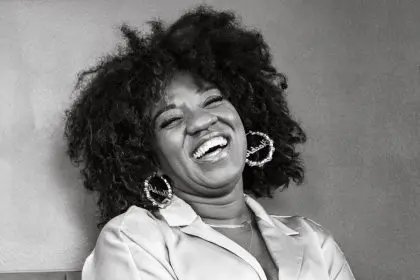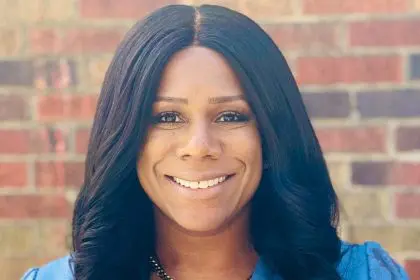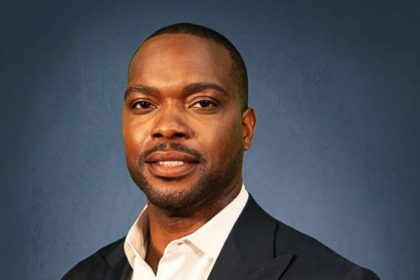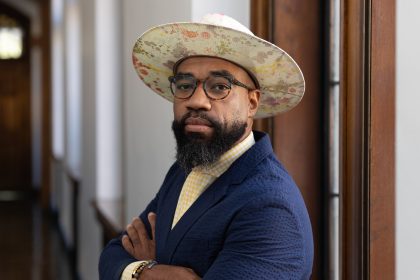Dina Harris is a phenomenal story — a woman who picked herself up from a very low credit score, learned how credit could work for her, instead of against her, and became the founder and Chief Executive Officer of National Faith Homebuyers.
As CEO, she has convinced people who didn’t think homeownership was possible that their dreams could come true. Because of her work, more than 5,000 families have either become homeowners, or have been able to stay in homes they were at risk of losing.
Her company has earned the recognition of the Congressional Black Caucus. She also was the first recipient of the Courage Award by the Secretary of Housing at HUD. And she’s still going strong, making a difference in people’s lives.
In an eye-opening conversation with Munson Steed, the publisher and CEO of rolling out, she reveals a little of the secret sauce that can make the difference — stuff colleges don’t teach. Here is their conversation:
Share the journey of what it’s like to see a couple or a mom begin your program, then a year or six months later, in a home and proud.
The first time I put a family in a home, I think it changed me as well as them. That was 28 years ago, and I’m still doing it today. I’m still excited about what I do, and I continue to create paths to help our families. People of color have long not been able to get homes. So, I realized we have to create a process where we have large numbers instead of five a year. That was always my dream and my passion, to get large numbers and results and make sure they didn’t lose the house after we got them in it. So, we kind of covered the whole gamut of working with a family. But the tears, the happiness, the disbelief, the fear — those are the things that I see along the path. It starts out with fear and disbelief.
Let’s talk about that: A person is really working. They know that banks don’t make loans to individuals that they don’t know, and the only way they know them often is through credit. The only way they know them is through an asset that they’re trying to acquire. Why is it important to understand what banks need and build relationships with banks so that you can become a homeowner?
Well, we have to take the fear out of them actually walking into the bank. I teach them how to assess if that bank is for them. That’s important. I think that it’s important that we learn not to be afraid. Once we understand our credit and understand financials, it changes the game. I mean, I started this program because I didn’t understand credit. My credit score, when I started, was in the low 400s. People know that’s just not great. I’d been working for the city government for 20 years, but not understanding financials. I started in Ann Arbor, and the U of M [University of Michigan] students — my first customers were U of M students —came in droves. We put 50 families in homes in the first year, but they came because they said the colleges don’t teach this.
That was the craziest thing about it. But I designed this program for low-income families and families that didn’t understand financials, which were high- and low-income. So, I don’t have a restriction on who we help. I’ve helped some millionaires who don’t understand it.
Why is it important for the Rocket Community Fund to make access and finance flexible for nonprofits and organizations to be able to move and live their dreams? What role do they play?
Well, I started in 2017. Rocket reached out to me and said they wanted to start trying to improve the neighborhoods around downtown. They funded me to buy eight houses, renovate them, and sell them. I think the sales were probably $20,000 to $25,000, and this was in 2017. Today, those very houses are selling for over $100,000. What they did was enhance the community, and they put funding for rehab for people in the community. I think their goal is just to help our families because there are very frustrated Detroiters. Houses are in decline. Rocket has created so many different projects. I don’t run many of them, but the ones I work with have changed lives. Now, they’ve recently funded National Faith Homebuyers for a down-payment assistance program.
Why is that down payment so important?
Because if people are struggling, it’s hard to save. To be able to save down-payment money is just almost impossible. Last year, the Mayor of Detroit reached out, and his team said, “We know you’ve been doing down-payment assistance for the county, and we want to see if you’ll take a look and work with this.” So, we started working with our funds, and they funded me to the tune of $6 million. They weren’t sure if people were going to come in Detroit, but they did. We were giving each family up to $25,000. We spent $6 million in 90 days.
They renewed our funding. They gave us another $6 million, and by the end of the year, we were out of funds. They shut the program down in December. We started in March, and they renewed it about a month ago. So, they started with another $7 million, and Rocket Community Fund was one of the partners that funded that down-payment money.
What do you teach them so that they can keep their home? What do you whisper, as a housing whisperer, so that we don’t lose an asset once we’ve acquired one?
I scream it. I don’t whisper. But as a whisperer, yes, I teach them about not just getting the house and struggling with the house payment. Continue to create additional incomes. We work on entrepreneurship. I teach them how to understand their credit, how to shop for a home. At the end of the day, it’s about paying it off as quickly as you can, buying other assets, investing. So, we don’t just stop with that. I learned the same things myself. When I started this process, I didn’t have a clue. Today, I’ve been buying real estate for my children for the last 10 to 15 years. I know that I could live here comfortably and not worry about leaving something behind. When I started in this process, my family concept was to get it for yourself. I’m not leaving you a thing. That was just the way of the world [for] most families—that shouldn’t be the way of the world, but it was.
When we leave something, that intergenerational wealth gap is reduced. Owning a home helps reduce it. If you were giving a speech to a young group of Wayne State students, or a young group of Michigan State students, or even U of M, or Howard, or Morehouse, or Spelman, or Hampton, why would you encourage them to buy a home early?
Because that’s the first stage of building wealth. Once you own a home, especially if you’re young … I see a lot of young people closing these days. Once they have that house, they’ve got options. They don’t have to just pay off the house and keep it. They can use it to build their wealth. That’s exactly what I’ve done. Now, I own three homes. For me, my credit score is 868 today. I can virtually dictate whatever I want. That’s the key. Young people have access and opportunity. By age 30, they can virtually be a millionaire if they know how to manage their money. I talk to them about those steps, those stages, and how everybody in Detroit has a hustle. I tell them to turn that hustle into entrepreneurship. We teach that. That’s a part of our counseling and the education that I provide virtually.
I also think we have to make this kind of fun because people are afraid. I do scavenger hunts during class. It’s so crazy. My classes [have] attracted 200 to 300 people a month for the last 20 years. I’m amazed that people are still coming, and it’s not the same people. It takes us 90 days to two years to put people in homes. I hire user-friendly people, meaning people that have compassion and heart. My job is morale. I give my staff a month off in December to heal and recuperate. They work a four-day workweek, and I do some fun things with them. I take them to Miami for a week in December. I’ve been doing that for 15 years. I think if they’re happy, they’re going to make my customers feel good about themselves. That’s part of this process. We are shamed, we’re embarrassed, we don’t know what our credit looks like, and we don’t think we are going to get anything. My first house, my ex-husband refused to get out of the car. He was a skilled trades worker at Ford with great credit, and he said, “I’m not going to let these people trick me into dreaming that I can get a house.” And we — I bought that house. He’s in it today.
For that person who it might take two years to get into that home: Walk us through the scenarios of just being patient and understanding that it’s a mission, and it’s fulfilling once you get to the end of that two years.
I create hurdles. I create, I guess, sprinkle coins along the path for them. But, I create hurdles of, firstly, public credit course. We walk through what can we get done right now and what can we get off this credit report that is not yours. We start with little hurdles, and then we start talking about needing some money. We certainly need at least a thousand dollars just to get in the game. So, we’re working on saving. The whole time we’re building them, we’re building a file that their banker will get access to. By the time they’re done, their score is higher, they feel good because they understand the process, and we don’t beat them up about what’s going on in the past because that just doesn’t help. My classes are taught by bankers and realtors. It gives my customers a chance to be able to measure the personalities. I put some really user-friendly lenders in that class. It’s a lot of fun. You should come and visit once. You will be very tickled.

















